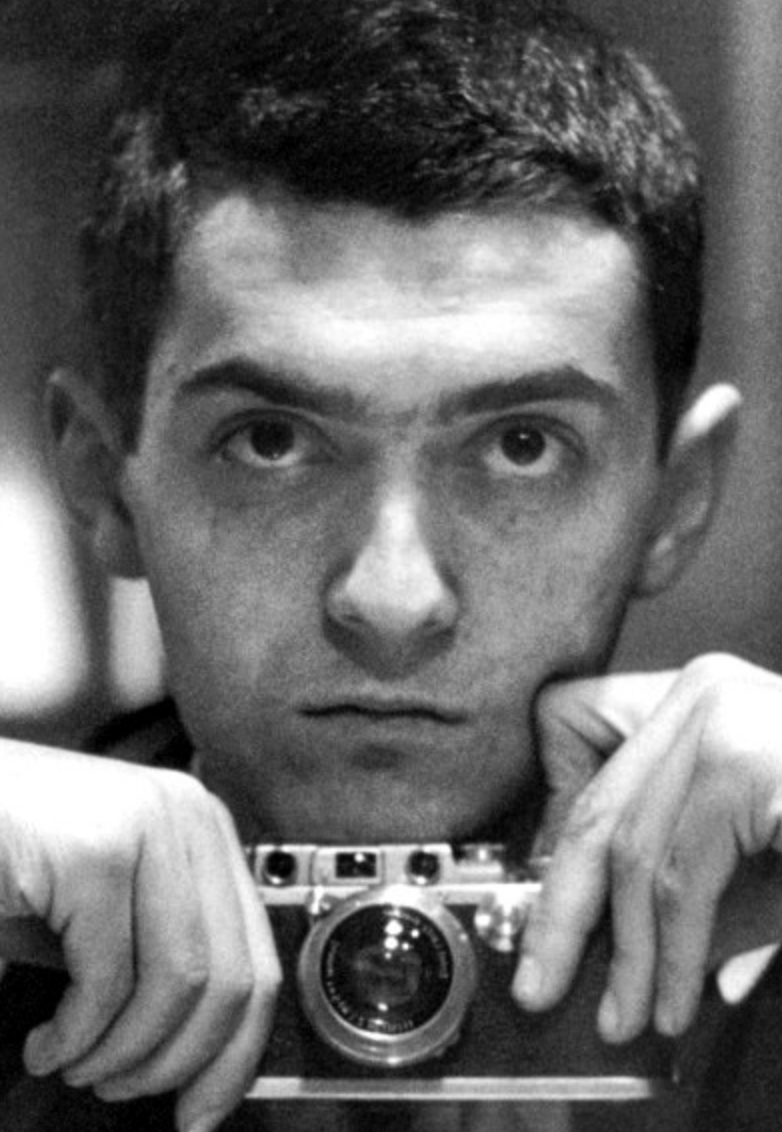On this date in 1928, filmmaker Stanley Kubrick was born in New York City to secular Jewish parents, Sadie (Perveler) and Jacob Kubrick, a physician. He gave up his idea of becoming a jazz drummer after his father gave him a Graflex camera at age 13, and his photographic talent blossomed.
Shortly after graduating from high school in 1945, he snapped a photo of a weeping man surrounded by newspapers announcing FDR’s death. He submitted it to Look magazine, received $25 and was hired by Look a year later as an apprentice photographer. In 1948 he married Toba Metz, his high school sweetheart, in a union that lasted three years.
After making several low-budget short films, he directed the first of his 13 feature films, “Fear and Desire,” in 1952. Following that were “The Killing” (1956), “Spartacus” (1960), “Lolita” (1962), “Dr. Strangelove, or How I Learned to Stop Worrying and Love the Bomb” (1964), “2001: A Space Odyssey” (1968), “A Clockwork Orange” (1971), “Barry Lyndon” (1975), “The Shining” (1980), “Full Metal Jacket” (1987) and “Eyes Wide Shut” (1999).
His critically acclaimed “Spartacus” featured an all-star cast including Kirk Douglas and Laurence Olivier. The screenplay was written by blacklisted Hollywood Ten victim Dalton Trumbo. The film won four Oscars and received six Golden Globe nominations. President John F. Kennedy crossed an American Legion picket line to watch it.
Kubrick’s second marriage, to dancer and actress Ruth Sobotka, ended in 1957. The next year he married actress Christiane Harlan. They had two daughters, Vivian and Anya, and, concerned about violence in America, in 1961 moved to England, where they lived until his death 40 years later.
British censors were also more forgiving about his movie “Lolita” and its acceptance of Vladimir Nabokov‘s character Humbert Humbert, obsessed with a barely pubescent girl played by Sue Lyon. Lolita’s mother, played by Shelley Winters and in love with Humbert, asks him if he believes in God. He answers, “The question is does God believe in me?”
Kubrick’s science fiction epic “2001: A Space Odyssey,” co-written with Arthur C. Clarke, is widely seen as among the most influential films of all time and one subject to a variety of interpretations. Kubrick refused to divulge what the meaning was and if some critics were correct in calling it “profoundly religious.”
Kubrick: “How much would we appreciate La Gioconda today if Leonardo had written at the bottom of the canvas: ‘This lady is smiling slightly because she has rotten teeth’ or ‘because she’s hiding a secret from her lover?’ It would shut off the viewer’s appreciation and shackle him to a ‘reality’ other than his own. I don’t want that to happen to ‘2001.’ ” (Playboy magazine interview, September 1968)
He further says in the interview that humans have to create their own meaning. “The most terrifying fact about the universe is not that it is hostile but that it is indifferent. … However vast the darkness, we must supply our own light.” He would say that “chance chemical reactions” over billions of years created life on Earth, not God or some godlike being.
He died of unexpectedly during the night of a heart attack at age 70 a week after screening the final cut of “Eyes Wide Shut.” (D. 1999)
PHOTO: Kubrick at age 21 in Look magazine; public domain photo.


